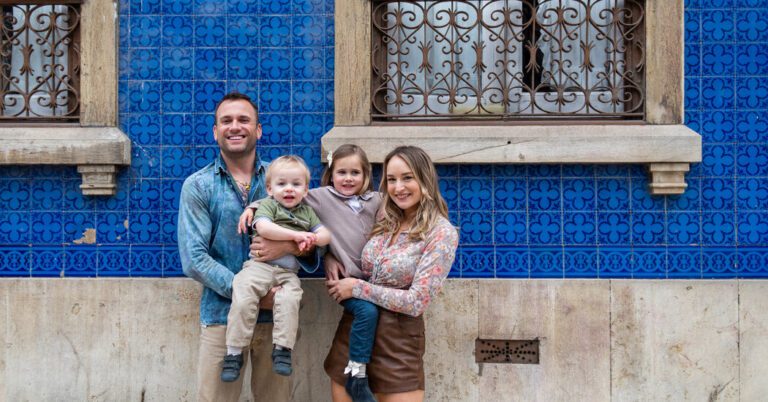Other visa programs for foreigners of means remain intact.
Amelia Guertin has been in the country on and off over the past year, living on a tourist visa while she applies for a long-term one. She arrived in Portugal after living in Hawaii, San Francisco and New York, places that seemed “extremely unaffordable,” she said. Immediately, she knew she wanted to settle down somewhere cosmopolitan, but also relaxed.
Earlier this year, she hunched over a laptop with her architect, Hannah Reusser, at Wander, a Lisbon bar with plush velvet sofas, exposed ductwork and soft lighting. Ms Guertin, 31, had already started demolishing a small house she bought last October for €320,000 in Aroeira, a seaside town south of Lisbon, where she can surf.
Ms. Reusser discussed making the three-bedroom, two-bathroom space more functional, suggesting she revamp the kitchen and living room. Ms. Guertin, chief operating officer of a British technology start-up, pushed Ms. Reusser on the deadline. Was June realistic? Ms. Reusser worried that the project was too ambitious, given pandemic-related delays and material shortages.
An hour later, Ms. Guertin rushed across the cobblestone streets to get to her Portuguese class a few blocks away, worrying about the schedule. “In Portugal, you have to show a lot of patience,” says Ms. Guertin. “It seems disorganized, but I have confidence it will get done.”
HAS Da Noi, a small restaurant in the center of Lisbon, the diners were crowded on the tables and those who had come for a drink spilled out into the street, speaking in English, German and French. Simāo Martins, 22, an economics student at the University of Lisbon, was preparing an Aperol spritz behind the bar. He works full time, but lives at home with his mother, as do his friends.


